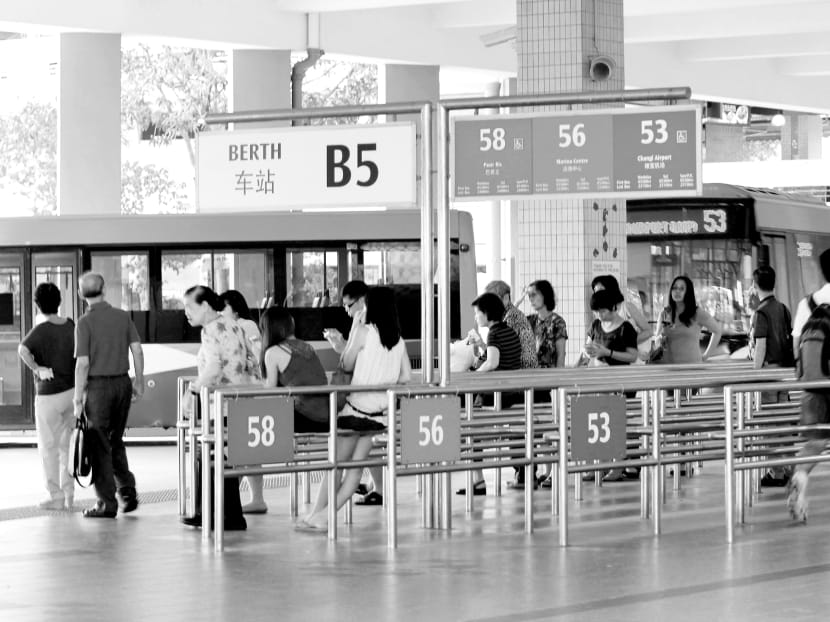Recentralisation of urban governance in Singapore
As urbanisation gathers pace, governments need to address the rising needs of a burgeoning class of urban dwellers. Given its size and status as a compact and densely populated global city-state, Singapore is particularly vulnerable to the pressures of urbanisation.

In May, the Government restructured the public bus industry to one where it will own, provide and fund all bus operating assets and infrastructure. TODAY FILE PHOTO
As urbanisation gathers pace, governments need to address the rising needs of a burgeoning class of urban dwellers. Given its size and status as a compact and densely populated global city-state, Singapore is particularly vulnerable to the pressures of urbanisation.
This has prompted a recent rethink of the institutions and processes through which its government delivers urban services and solutions.
In his National Day Rally speech on Aug 17, Prime Minister Lee Hsien Loong announced the establishment of a Municipal Services Office (MSO), which will coordinate the efforts of eight public agencies in delivering municipal services and act as an inter-agency platform.
Last week, Temasek Holdings and JTC Corp announced plans to merge four of their operating entities — Surbana International Consultants Holdings, Singbridge Group, Ascendas and Jurong International Holdings — into a single mega-entity to provide urban solutions to various markets.
While the setting up of the MSO suggests a move towards a recentralisation of urban governance, the merger reflects a similar recentralisation in the provision of urban solutions to commercial partners.
This comes after decades of decentralisation that have contributed towards greater efficiency in public service delivery. More importantly, this shift from decentralisation to recentralisation reflects a shift in Singapore’s urban governance style.
LIMITS OF DECENTRALISATION
The 1990s and early 2000s saw a global shift towards decentralisation and privatisation among governments in both developed and developing nations. This coincided with the emergence of the New Public Management (NPM) movement in public administration circles, which had emanated from the formation of the National Partnership for Reinventing Government task force set up under the Clinton administration in 1993.
Based on business management principles, the key precepts of NPM largely involved the privatisation and contracting out of public service delivery as well as decentralisation of government bureaucracy.
The fundamental assumption was that decentralisation and privatisation would encourage greater efficiency in public service delivery.
Singapore was seen as a major proponent of NPM during this period. As political scientist M Shamsul Haque noted then, the Government converted many state institutions into autonomous agencies and statutory boards, which were managed like private sector organisations.
At the same time, public service providers, such as SMRT and SingTel, were incorporated and privatised.
However, the global financial crisis of 2007 laid bare the limitations of excessive decentralisation and prompted a shift in public administration thinking towards more state-centric approaches which involved greater government oversight and control.
In particular, there was a perceived need for the government to regain its control over incorporated public organisations, such as Freddie Mac and Fannie Mae.
While Singapore was largely spared from such regulatory lapses in its financial sector, it nonetheless faced negative implications from its decentralisation drive.
An increasing population density and a large influx of foreign workers led to strains on public infrastructure. In May, the Government restructured the public bus industry to one where it will own, provide and fund all bus operating assets and infrastructure such as buses, depots, interchanges, bus monitoring and operations systems, and fare systems.
Under a new contracting model, the Land Transport Authority will determine the bus services to be provided and the service standards required, while bus operators will have to bid for the right to operate these services.
This facilitates more effective central planning of bus services, while at the same time encourages greater competition in the industry. As cities become denser and their economic make-up more diverse, they will only become more complex and hence, require more responsive and effective governance. Urban solutions will need to address the multiple aspects of city-life. Decentralised institutions that are overly-focused on their own narrow jurisdictions will find themselves less able to address complex and multi-faceted urban issues.
However, there is also a danger of swinging to the other extreme of over-centralisation as this may give rise to excessive red tape, bureaucracy and a lack of engagement with issues on the ground.
Despite its limitations, decentralisation still has its benefits, particularly in terms of greater efficiency and responsiveness to local stakeholders.
Efficiency in public service delivery remains important. Governments do not possess infinite resources and will, therefore, need to maximise their resources in providing urban services. Decentralisation remains an important tool for enhancing efficiency in public service delivery.
However, there is now a need to recognise the limits and shortcomings of a decentralised government and seek to address these limits with a creative mix of decentralisation and recentralisation. While decentralised organisations should remain responsive to their stakeholders, other organisational forms, such as central coordinating organisations such as the MSO, can be incorporated to ensure that the efforts of individual institutions are coordinated and coherent.
This requires an urban governance model that features strong leadership at the centre coupled with operational autonomy among agencies and institutions at the localised level. More importantly, the crux of urban governance lies in the linkages between central and local agencies.
As the poet WB Yeats has written, “The falcon cannot hear the falconer; Things fall apart; the centre cannot hold.” Coherent and effective urban governance requires strong centre-local linkages.
Recentralisation does not necessarily mean a complete roll-back of the organisational and efficiency gains from early decentralisation efforts. Rather, there is a need to strike a balance between central planning and decentralised delivery of urban services.
ABOUT THE AUTHOR:
Dr Woo Jun Jie is Postdoctoral Research Fellow at the Lee Kuan Yew Centre for Innovative Cities, Singapore University of Technology and Design.






